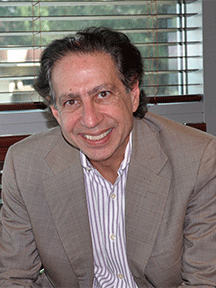
By Christopher Sanchez
Steven Brint is currently the Vice Provost of Undergraduate Education, Professor of Sociology, and Director of the Colleges & Universities 2000 Project at the University of California, Riverside. As vice provost, Brint has created new programs for encouraging undergraduate research, preparing students for prestigious honors and awards, and promoting broader appreciation among faculty members of the research on effective teaching practices in the disciplines. As a sociologist, Brint has conducted research on topics in education, the professions, and middle-class politics. He is the author of three books: The Diverted Dream (with Jerome Karabel) (Oxford University Press, 1989), In an Age of Experts (Princeton University Press, 1994), Schools and Societies (Pine Forge/Sage, 1998; second ed. Stanford University Press, 2006). He has received awards from the American Educational Research Association, the American Sociological Association, and the Council of Universities and Colleges for his research on education. His work has been translated into seven languages. The National Science Foundation and two philanthropies have funded Brint’s research group, Colleges & Universities 2000, for the last thirteen years. The project has produced two widely used data bases, the Institutional Data Archive (IDA) on American Higher Education and the College Catalog Study (CCS) database, as well as two dozen published papers and dissertations.
INTERVIEW
How has the Great Recession of 2008 affected higher education in the United States?
BRINT: Some people imagined that the recession would have devastating effects on institutions including higher education. That seemed to be the case at the beginning when there were governors who stated that they were going to cut public higher education by as much as fifty percent. The worst did not materialize. The friends of higher education were able to reduce the severity of the cuts in most states. Stimulus funds also helped.
But we certainly have seen some important consequences of the recession. First, tuition and fees, which were already increasing, rose dramatically. On average, tuition to attend public universities and colleges has increased by fifteen percent. Ultimately the rise in tuition has certainly not facilitated greater access for low-income students. Second, enrollments went up during the recession, partly because higher education is counter-cyclical with the economy: when the economy is struggling, higher education becomes a more attractive alternative to working. Third, colleges and universities have actively pursued international students, because they pay higher tuition. This has led to changing demographics at many universities. The positive side of this is greater geographical diversity and more chances for American students to interact with students from abroad. Fourth, the number of students who are studying online has grown. Universities can increase the number of students who are taking courses by moving some courses or sections online. The recession also increased emphasis on accountability measures like graduation and employment rates. The recession put wind in the sails of people advancing those measures like legislatures and regional accreditors. When money is tight, especially public money, people want to know if it is being used effectively.
I would say that some of the private colleges also had problems and those problems were a little different than those experienced by public colleges and universities. Private institutions are tuition dependent. They charge high-published prices, but most students do not pay the full-published price. Instead, they receive discounts depending on their family’s financial circumstances and their own academic accomplishments. During the recession private colleges had to increase and broaden the discounts they offered because so many families’ incomes took a hit. Some private colleges suffered financially, because they were not able to achieve the size of incoming classes that they needed in spite of higher discounts.
Has there been any field or discipline that has suffered more severe consequences as compared to others?
BRINT: Ultimately there is not one field or discipline that has suffered consequences disproportionately. As seen in cases in states like Louisiana and Missouri, classes that have small enrollments, like foreign languages, are the ones to be reduced or cut the most. I think when times are tough and there is a perception that finances are tight, low enrollment programs, especially those that do not bring in external resources like donations or grants are in peril.
People have talked about the decline of the humanities for a long time. Starting in the late 1980s and early 1990s, concerns that graduate students from the humanities disciplines were not obtaining jobs fed into this sense of crisis. It was also related to the historical lack of appreciation of the humanities on the part of a business-oriented society as well as controversies about the politicization of the humanities. Although the relative size of humanities majors is certainly lower at most universities, the sheer number of students who study the humanities is still a sizable population. There is intellectual progress being made in these fields, and I do not foresee them becoming marginal.
Relative decline is not limited to the humanities. The fact is that all of the arts and sciences have declined relative to occupational fields. We often call the arts, humanities, social sciences and natural sciences the “basic” disciplines—those that are “knowledge for knowledge’s sake”—in contrast to the “applied disciplines” like business, education, and engineering—those that are intended to prepare students for jobs. More students want to study applied disciplines because they think they are more closely connected to jobs. Consequently, physics and math have lost “market share,” just as foreign languages, classics, arts, and other humanities disciplines have lost market share. The arts and sciences that are growing are connected to business or health; economics, biology, and psychology are among the few arts and sciences fields that have grown relative to occupational fields.
In what direction do you see higher education taking in the future? Which development in higher education are you most excited to see continue?
BRINT: I will talk about a few directions that worry me.
The growth of online courses worries me because students who take most or all courses online do not have the opportunity for face-to-face interaction with other students and faculty. That is an important part of high-quality educational experiences. Students who just study online are more disconnected, even though they have opportunities for online interaction. It’s just not the same as studying with other people. Students who take most or all courses online can learn to be technicians, perhaps, but they cannot prepare for fields that require lots of human interaction, and they are not likely to become leaders.
The academic side of college seems to be a diminishing concern for American college students judging from the amount of time most spend on study. By contrast, student organizations, friendship networks, and big-time sports are very prominent parts of the college experience for the majority of students. It’s clear to me that the purpose of college is shifting a bit from intellectual development to networking and becoming engaged in a wide variety of activities, such as volunteering and student organizations. Although I think students miss out by not taking their course work more seriously, I am not as alarmed about this as some, because I think students may learn quite a bit through their involvement in student organizations and friendship networks. What we need to know is what they are learning. Are they learning card playing and drinking games, or are they learning how to organize meetings, write for a deadline, and plan events? I’d feel better if I was convinced that there was more of the latter type of learning than the former. My current research is exploring this topic.
Now some of the more clearly positive directions:
The growth of international students on campus is a positive development, as is the internationalization of the curriculum. The same with students going aboard to study. We are all part of one human race, and it helps for students to know more about people who come from countries other than their own. Not all of these experiences are going to be positive, but even when they are not, they should start productive lines of questioning about others’ cultures and our own.
Our level of deliberativeness about what we want to accomplish in our courses is improving. I notice there are many more professors and staff people who are thinking more about course design, learning objectives, how to achieve learning objectives, and how to assess whether these objectives are being met. The quality of what we do in the classroom is improving because of this. It is also improving because we are learning a lot more about how students learn. We have consequently seen many more efforts at integrating technology and interactive, problem-based teaching practices into intellectually challenging course work.
In the end, I am optimistic about the future of the undergraduate experience. Universities are special places were you can go from a very provincial background to a new, more interesting and varied “big city” environment. That period of time from 18-21 years of age is the best time to take in new things and to develop new ways of being in the world. Universities provide the means for making the jump to the bigger world of thought and action. For students who take advantage of university education, we might say the world changes from black and white to technicolor. We are still very good at producing that effect.
Christopher Sanchez is a junior at the University of California, Riverside, majoring in sociology. The University of California, Riverside is home to the Iota of California Chapter of Phi Beta Kappa.




